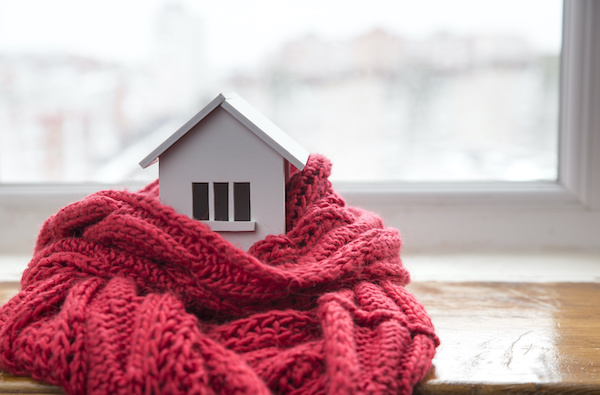When you think of winter, you probably envision sitting by the fire, drinking hot cocoa, and snuggling under warm blankets. As enjoyable as this toasty scene may be, you could be losing valuable warmth through countless cracks and openings in your home. Such energy inefficiency can send your electricity and natural gas costs through the roof. Here are some ways to reduce your energy usage — and ensure that high energy bills don’t spoil your winter wonderland.
1. Caulk and Weatherstrip Around Openings
One of the simplest and most effective ways to save energy is to seal off your window and door frames. You can do this by caulking the openings that allow air to seep in. Weatherstripping is another low-cost way to reduce air seepage from doors, windows, and attic and basement access points.
2. Cover Drafty Windows
You can also cover your windows with a durable clear plastic sheet or tape a clear plastic film to the inside of the window frame. Be sure the plastic is sealed tightly to the frame. This may not have the best curb appeal, but it should do the trick.
3. Take Advantage of Solar Heat
Windows aren’t just energy wasters. By leaving your curtains open during the day, you’ll enjoy the warmth-boosting benefits of the sun’s rays. Just make sure to close your window treatments at night, as this will help prevent heat loss.
4. Use a Smart Thermostat
Never regret leaving the house without adjusting the thermostat again. With a Wi-Fi enabled smart thermostat, you can change the temperature from your phone. Even better, these devices will learn your behavior and automatically optimize your temperature settings for maximum energy efficiency.
5. Be Sure to Close Your Fireplace Damper
When your fireplace isn’t in use, make sure to keep the damper closed. Keeping the damper open is just like keeping a window open, which allows warm air to escape.
6. Close Vents and Doors to Unused Rooms
Don’t bother heating that guest room unless your in-laws are in town. Closing vents and doors in unused rooms redirects the heat to high-traffic areas of the home and prevents energy waste.
7. Apply a Kitchen Exhaust Fan Cover
This can keep air from leaking out when the fan isn’t in use. Exhaust fan covers are typically attached by magnets, making them easy to remove or replace.
8. Switch on Your Ceiling Fans
That’s right — your ceiling fans are actually great tools for saving money on heating costs. To adjust your fan for winter, flip on the reverse switch (usually a rectangular switch at the base of the fan) and set it to slow. This will reverse the blades’ direction and gently move heat downward using minimal energy.
9. Try a Space Heater
Space heaters are an energy-efficient way to heat small, sealed areas, since there is no heat lost through air ducts or combustion. Use them when you need to spend limited amounts of time in spaces like the garage, shed, bathroom or study.
10. Maintain Your Heating System
Before you turn it on, have your furnace serviced. Not only will it work more efficiently (and thus save you money), but you’ll feel safer knowing it’s not flammable or leaking any poisonous fumes.
11. Insulate Your Home
Perhaps the most important thing you can do to save energy during winter is to ensure your home is well insulated. Heat rises, and if your insulation isn’t preventing that heat from escaping, you’re wasting money on excess energy production. While it can be expensive and time-intensive, maintaining proper insulation will add up to serious savings in the long run. Each type of insulation material has a different lifespan, which can be affected by water leaks and the settling and shifting that occurs to houses over time. Be sure to check your insulation periodically to make sure it’s in good shape.
